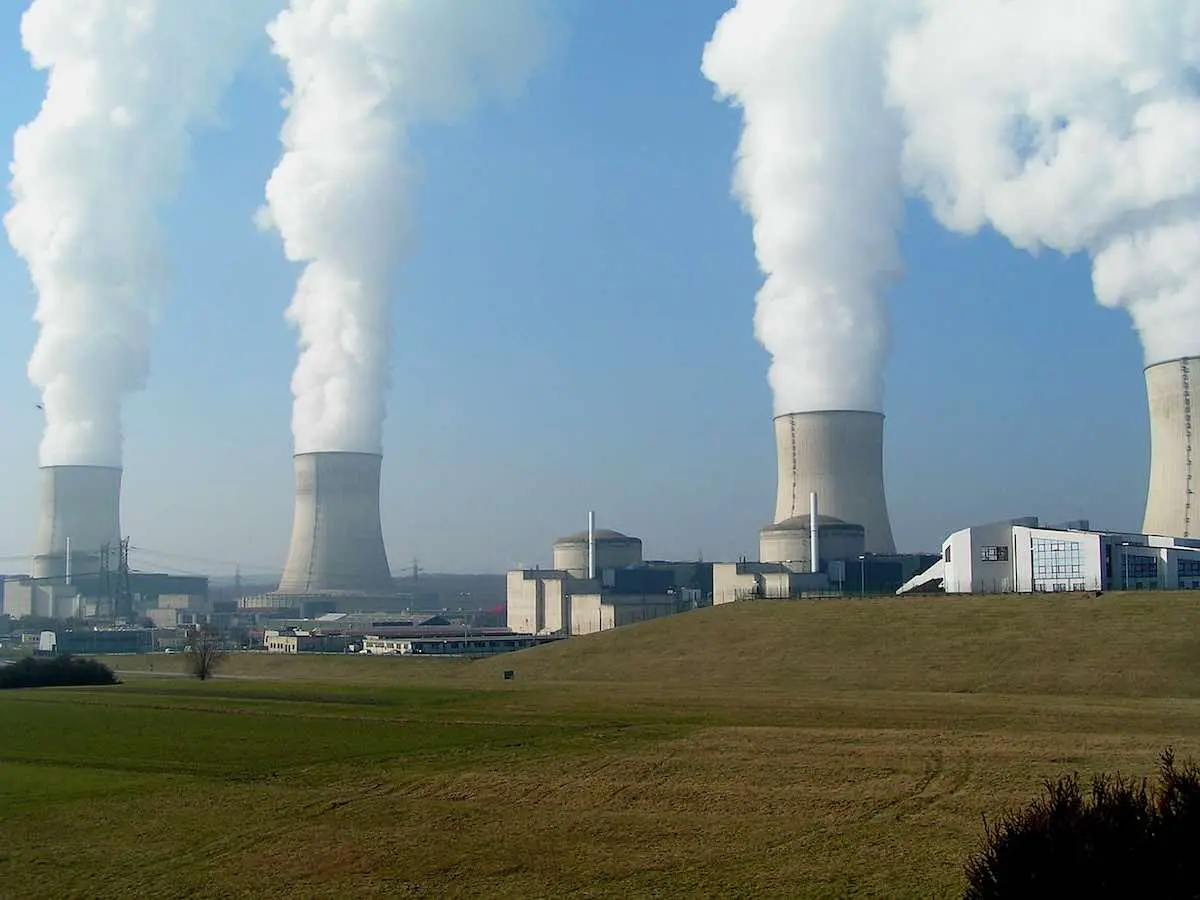GTG Links No.6 – July 29th

There has been so much climate, games and tech news this past fortnight I was tempted to do a links post last week. I don't want to overload anyone's inbox though, so let me know if you have a strong preference for longer or more frequent links roundups. Let me know, via twitter or email.
Heatwaves + Consoles = 🥵🎮🔥
Earlier in the month, with the impending heatwave in Europe, Nintendo issued an advisory about environmental conditions potentially exceeding design specifications for the Switch.
Nintendo issues heat advisory for Switch users as blistering temperatures loomhttps://t.co/yVu1xJRkn5 pic.twitter.com/m6rP1LJ4Fz
— GameDeveloper.com (@gamedevdotcom) July 12, 2022
And then a similar warning was issued about the Steam Deck just a few days later:
A bit more detail about this – Steam Deck’s APU runs well at temperatures up to 100°C. At 100°C, it will start to throttle performance, and at 105°C it will shut down. Again, this is to protect itself (and you) from damage.
— Steam Deck (@OnDeck) July 19, 2022
We are rapidly departing the safe, stable and predictable operating temperatures for both planet and devices. We can expect to see more unlikely material impacts from increasing heat in the years to come.
The Politics of Cooling in the GameDev Workplace
Really sad story about how game workers have been treated in hot conditions. Prioritising server performance over workers health and comfort seems both unjust and unproductive. Reminds me of the anecdote I opened Digital Games After Climate Change with, and the unpleasant choice between gaming and a comfortable room temperature. Don't put up with it, do something about it – join you union!
Friendly reminder to my dev friends.
— Claire Blackshaw (@EvilKimau) July 12, 2022
Turning off your dev kits, PCs, monitors ect... will make today a bit more bearable.
Esp dev kits as they aren't consumer gear. pic.twitter.com/zKBfDlnlYD
Next-gen GPUs are power-hungry monsters
Two stories – the first has some leaked details about power consumption of next-gen GPUs with some seriously eye-watering figures. 800 Watts!

And then Tech Radar, having seen the same figures, argues quite convincingly that the industry is 'drunk on power'.

Hard to disagree. For the same 800 Watts used by just one of these graphics cards you could almost run four PS5's – quite the illustration of the point raised in last week's post by console manufacturers.
Also nice to see the TechRadar author arriving at a similar conclusion to my own: that 4K is more than enough and, in a living room setting, 8K will likely never be worth it for most players. The difference is barely discernible, even if marketing departments may swear otherwise.
Another pair on the infrastructure of data centres
Many in the US are already located in water stressed regions, leading to some real challenges in the Western megadrought:
In recent decades, many data center companies moved toward using water rather than electricity to keep servers cool in a bid to keep energy use and emissions down, he added. But it is becoming increasingly clear that water is a potentially scarce resource in many regions as well.

The second is an edited version of published research into the social and resource impacts of these essential digital warehouses. At MIT's The Reader, the piece is about 'The Staggering Ecological Impacts of Computation and the Cloud':
I feel the heat swarming the air. The flood of warmth seeps into the servers faster than the heat sinks printed onto their circuit boards can abate, faster than the fans can expel the hot air recycling in a runaway feedback loop of warming. The automatic shutdown sequence begins, and Tom curses, reminding me that every minute of downtime, of service interruption, may cost the company many thousands of dollars. Within two minutes, however, the three massive air conditioning units that had been idling in a standby state activate to full power, flooding the room with an arctic chill and restoring order to the chaotic scene.
It also features some important reminders about the "unenforcable" nature of corporate pledges, and some rich ethnographic data from the experience of those unfortunate enough to live close by and face with the constant hum of fans and machinery.
New statement from the Commonwealth Scientific and Industrial Research Organisation (CSIRO) – Australia's peak research body into nuclear potential in Australia
In short: oo slow, too costly, and we have better alternatives here already anyway. Which most of us already knew, but its nice to have the scientists spell it out so unequivocally.

On the Sizewell nuclear power stations in the UK
Perhaps the best story I read this month, as its one which blends on-the-ground interviews with historical and contemporary political-economic factors, and a keen literary sensibility. This piece about the (planned) Sizewell C nuclear power reactor is really compelling. It's the sort of long, embedded writing about our shared energy futures that is incredibly valuable and all too rare. Talking to people who live in the area about the complex relationships they have to the projects – people who have seen the changes and benefits it has brought – is incredibly valuable and essential. Here's a quote from the author's experience visiting the Turbine hall of Sizewell B:
What I was left with was simply a distinct feeling of having been in proximity to energy in its purest form, energy of a magnitude I had been exposed to nowhere else save for the natural world at its most Romantically sublime – at sea in a gale, or on a mountain in a thunderstorm. Part of me, as I trailed after Danny along the elevated gantries, was screaming with the thrill and terror of it, and when we emerged into the daylight and could remove our earplugs and glasses, I had to collect myself: it was almost impossible to believe that such a creation existed, here, on this quiet stretch of the English coast, on the edge of drowned Doggerland.
Catch up on the latest in Solar Panel tech improvements and what they mean for the future of renewables
Some cool stuff in here.
“Carbon removals from nature restoration are no substitute for steep emission reductions”
New research into the potential for natural solutions to climate change finds they are insufficient on their own to meet climate goals. A couple of the key findings are that "land removals [of CO2] cannot be scaled up quickly enough to noticeably reduce peak global temperatures" and that "nature restoration is crucial but cannot offset fossil fuel emissions for net zero."
The Daily Dose of Gloom: Water levels in the Rhine are so low, they're close to halting cargo shipping
The International Energy Agency has a new real time electricity demand tracker
Useful since demand often correlates strongly with carbon intensity:
The IEA real-time electricity map displays electricity demand, generation and spot prices from more than 50 sources. Data is available historically, as well as daily or hourly, and at country or regional levels. Explore the map to discover visuals and analysis.
US grid issues affecting the renewable rollout
A combination of poor planning, distributed responsibility, and an increasing rate of natural disasters is combining to put stress on US power distribution networks.

That system is failing because none of these players individually have the power or the responsibility to maintain the U.S. grid in the national interest, said Ari Peskoe, director of the Electricity Law Initiative at Harvard Law School. Rather, he said, they tend to prioritize provincial interests, typically utility profits or low consumer rates.
UK's Jet Zero strategy a “fantasy”
Despite the catchy name, carbon neutral fuels are a long, long way off – and may never be practical.

Im still waiting for the first airship or blimp company to startup as a carbon neutral alternative to flying, as KSR's Ministry of the Future predicts. Hard to avoid seeing big changes as inevitable in the long term. I wouldn't want to be an airline owner these days.
Thanks for reading Greening the Game Industry – if you can help spread the word about what we're doing here that helps immensely. If you've got a friend of colleague who you think would enjoy the posts here, send them a link or FWD them this email.
It can't just be up to any one of us – it's going to take all of us to get the kind of change we want to see in the games industry. Till next time.



